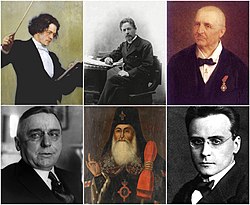 | |
| Gender | Male |
|---|---|
| Origin | |
| Language | Latin |
| Other names | |
| Alternative spelling | Антон (Cyrillic) ანტონ (Georgian) |
| Related names | Antonius, Anthony |
Anton is a masculine given name. It is derived from the Latin name Antonius, and used in various languages. [1] [2] Notable people and characters with the name include:
